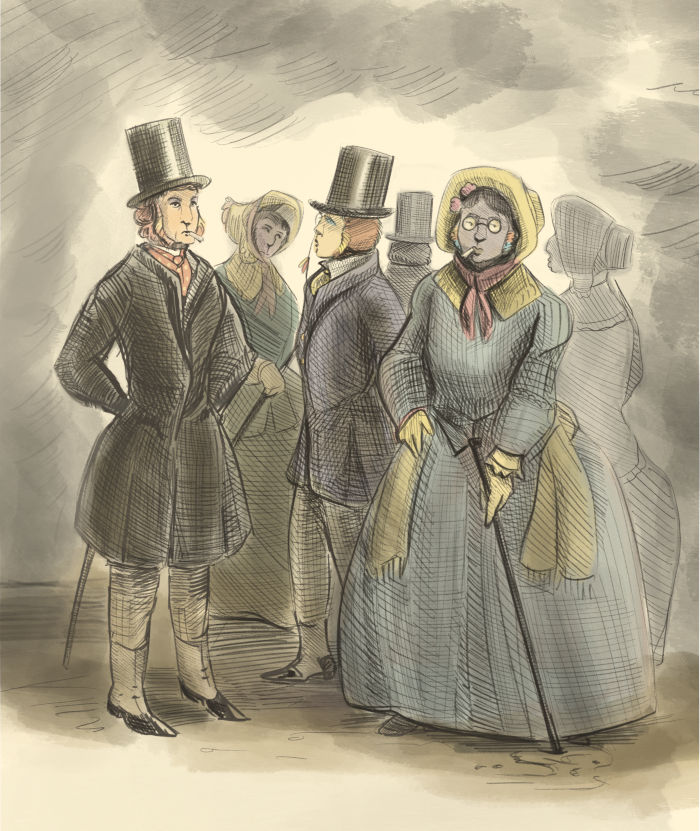Society
Quillochs live in a semi-industrial society ruled by a strict hierarchy. At the very top are the nobility and matriarchs of their kind. Most of society is involved in various guilds and agricultural pursuits in the Old World. Those privileged enough to live in the Sanctuary may serve the upper classes by their skilled trades, education, or work in their grand houses.
Nobility
Quilloch society is ruled by an oligarchy of Duchesses and their daughters. Upper nobility are always the clones of previous nobility, descendants of legendary ancestors.
Titles and Addresses:
- Duchess: The Duchess [Lastname]
- Countess: The Countess [Lastname]
- Viscountess: The Viscountess [Lastname]
- Lady: Lady [Firstname] [Lastname]
- Baron: Lord [Lastname]
- Cleric: The Honourable [Lastname], Sister [Firstname]
- Knight: Sir/Dame [Firstname][Lastname]
| Title | Address |
|---|---|
| Duchess | The Duchess [Lastname] |
| Countess | The Countess [Lastname] |
| Viscountess | The Viscountess [Lastname] |
| Lady | Lady [Firstname] [Lastname] |
| Baron | Lord [Lastname] |
| Cleric | The Honourable [Lastname], Sister [Firstname] |
| Knight | Sir/Dame [Firstname] [Lastname] |

Countesses and Viscountesses rank below a Duchess, 1st and 2nd in line for her title respectively. Ladies are non-clone daughters of Duchesses and are ineligible, but rank highly regardless.
Barons are commoners awarded a title by the upper nobility. They are given grants of land to oversee agriculture in the Old World. Some may also have mayoral duties over local settlements.
Clergy are highly educated members of society. They come from a noble or non-noble background. Their duties include: overseeing the Lake, leading ceremonies, or offering their expertise as doctors and educators.
Knights are trained to defend the nobility, especially Barons who might feel vulnerable in the Old World. When they retire, they are awarded a small fortune, their own land, and the title of "Dame".
Fashion & Manners
Quillochs hold themselves to high standards in manners and dress. They have rigid rules for etiquette and politeness tailored to almost every situation. Although they are covered in fur, clothing is highly important to them for self-expression and social conformity. Quillochs view their natural forms as something that they must hide, therefore going great lengths with as many frills, and ceremonies, as they can afford.

Education & Religion
Almost all public schooling is conducted by the Temple. Children as young as ten leave home to be taught subjects such as history, mathematics, music, literature, and the tenents of quilloch religion by a local institution.
The quillochs regard the Lake Sanctimonious as the home of their mysterious creator, an invisible entity that resides in its waters and holds the power to bridge their worlds together. Access to the Lake is strictly forbidden, except for sacred ceremonies, or transportation between worlds. The mystery of Sanctimonious draws many to continue their studies and eventually serve the Temple themselves.
Government
Although Duchesses are the figureheads of society, most of their work of maintaining society is overseen by their daughters, the Countesses and Viscountesses. At the municipal level, Barons consider the logistics of their farms, factories and towns.
The quilloch court of law involves an appointed judge, a few members of the clergy, professional lawyers, and one court duelist to test the character of the accused. Although quillochs consider themselves pacifists, punishments for petty crimes can still be labor-intensive and harsh. Many quillochs fear imprisonment in the Lake, where they might remain unconscious for the rest of their existence.
Quillochs have no true monetary system. Instead, they rely on a complex system of taxation and a direct trade of goods, which are chosen from a monthly catalogue, or a fixed package depending on the profession. (i.e. A valet given choice of canned goods, new silverware, and one small piece of furniture as payment). While the wealthy have no need for money, small communities may have their own coins that they trade for convenience. Usually, they do not carry more than a few at a time, since even one coin has a solid worth.